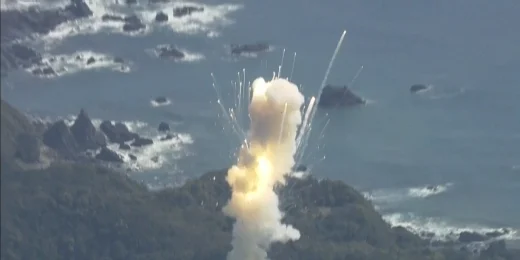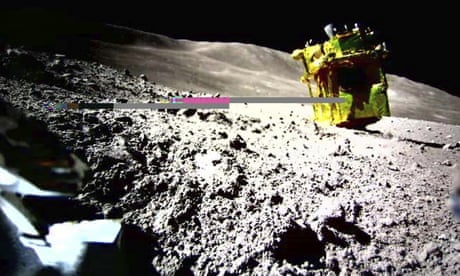A rocket made by a Japanese company has exploded seconds after it was launched to put a satellite into orbit.
Tokyo-based Space One’s 18-metre Kairos rocket blasted off from the company’s launch pad in the Wakayama region of western Japan, carrying a small government test satellite, on Wednesday.
Seconds later the solid-fuelled rocket exploded in flames, sending smoke billowing into the remote mountainous area, live footage showed. “The launch of the first Kairos rocket was executed, but we took a measure to abort the flight,” Space One said in a statement, adding that “details are being investigated”.
Burning debris fell on to the surrounding slopes as sprinklers began spraying water. Hundreds of spectators had gathered at public viewing areas including a nearby waterfront. “I had high hopes for this, so I’m disappointed. I want to know what happened,” one elderly man told public broadcaster NHK.
Failures on early attempts to launch a new rocket system are commonplace, and even expected, as exemplified by SpaceX. The Space One failure still marks a blow to Japan’s efforts to enter the potentially lucrative commercial satellite launch market.
The plan had been for Kairos – an ancient Greek word meaning “the right moment” – to put the satellite into orbit about 51 minutes after take-off. Parts shortages and other problems had reportedly led Space One to postpone the launch of Kairos five times, most recently on Saturday.
The mayor of Kushimoto, the town of 15,000 residents in Wakayama where the launch took place, voiced his surprise and disappointment. “I didn’t even imagine an outcome like this,” said Katsumasa Tashima. But the town “will continue to support Space One, and we want to continue to offer our help so that the first rocket will have a successful launch”, he said.
Space One was established in 2018 by a team of major Japanese tech businesses, including Canon Electronics, IHI Aerospace, construction firm Shimizu and the government-owned Development Bank of Japan.
Last July another Japanese rocket, the solid-fuel Epsilon S, exploded during a test about 50 seconds after ignition.
Last month though, Japan’s space agency toasted a successful blast-off for its new flagship rocket, the H3, after years of delays and two previous failed attempts.
That followed Japan’s successful landing – albeit on its side – of an unmanned probe on the moon, making it just the fifth country to achieve a “soft landing” on the lunar surface.
Source: The Guardian




Recent Comments